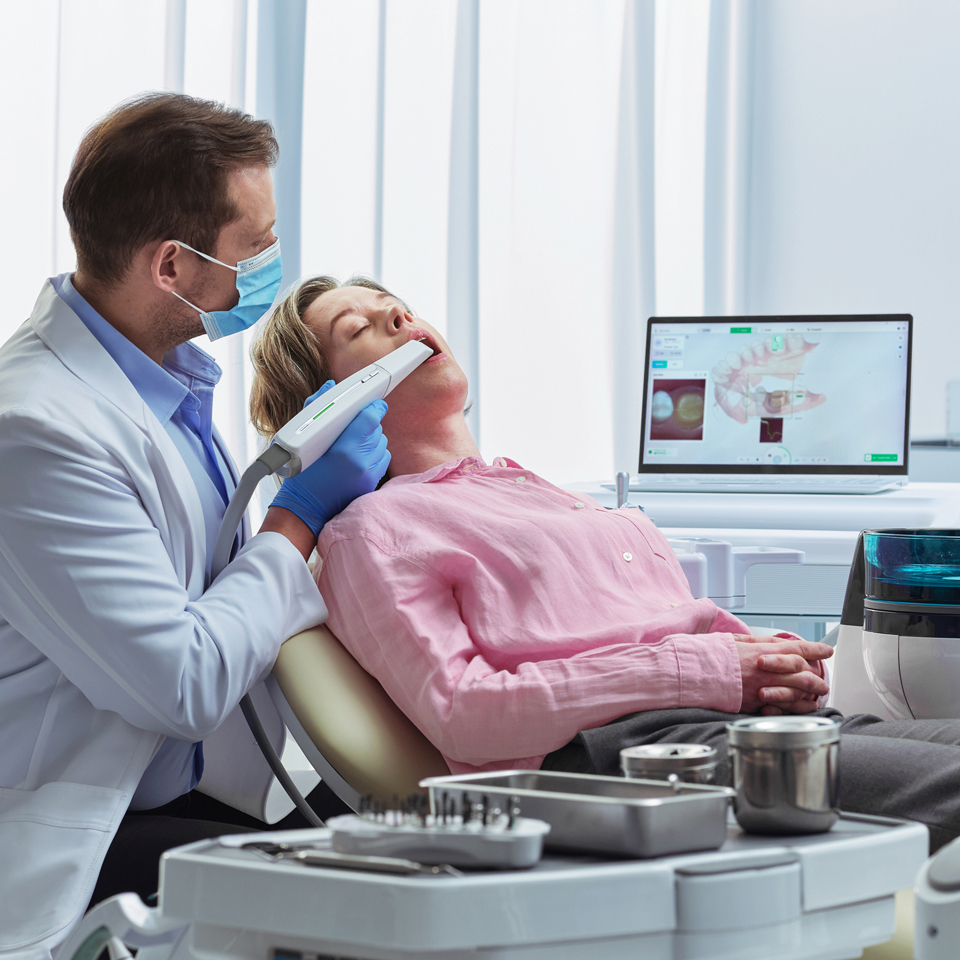
Huvitz's Optical Coherence Tomography (OCT) technology is an optical imaging technique that analyzes internal structures with high precision by irradiating light. By projecting infrared light, which is harmless to the human body, it provides high resolution below 60μm. This allows for high-resolution observation of the microstructure of teeth and soft tissues. The technology enables precise imaging of deep tissues in the teeth and gums, including dental caries (cavities), microcracks, periodontal diseases, and subgingival structures.
Currently, the Cone Beam Computed Tomography (CBCT) technology used in dental applications employs X-rays and provides a resolution level of 80μm–400μm. However, CBCT has limitations in observing microstructures such as fine cracks due to its low resolution for soft tissues (e.g., gingiva and pulp). Additionally, repeated imaging poses radiation exposure risks, raising patient safety concerns.
Huvitz's OCT technology offers a non-invasive diagnostic experience, free from skin incisions or radiation exposure, ensuring the safest and most comfortable diagnostic process for patients.
The "Tomography Convergence-Type Oral Scanner" patent describes a technology that simultaneously scans the external surface and internal structure of teeth to generate a comprehensive 3D image. By integrating Optical Coherence Tomography (OCT) scanning with intraoral scanning functions, this technology enables precise and extensive dental diagnostics. The data obtained from both scanning processes are combined through a dichroic mirror, allowing simultaneous observation of the external and internal structures of the teeth. This technology supports real-time 3D analysis, providing fast and accurate diagnostic results immediately after scanning.
[Patent No. 10-2458985, 12011336]
The Optical Coherence Tomography (OCT) interferometry imaging function penetrates
gingival epithelial tissue without being affected by saliva or blood to accurately capture
subgingival margins area. Experience a difference in technology with precise margin data
unlike anything you've encountered before.
Real-time scan images integrated automatically with margin data detected
by AI streamline the process. This integration facilitates the creation of optimal prostheses
through a simple verification step, followed by processing with L-CAD software, eliminating complex editing.
Designed with a wide 15x18mm Field of View (FOV) and a maximum 22mm Depth of Field (DOF), the
scanner enables broader area coverage with a single movement. This ensures a rapid and smooth
impression acquisition process.
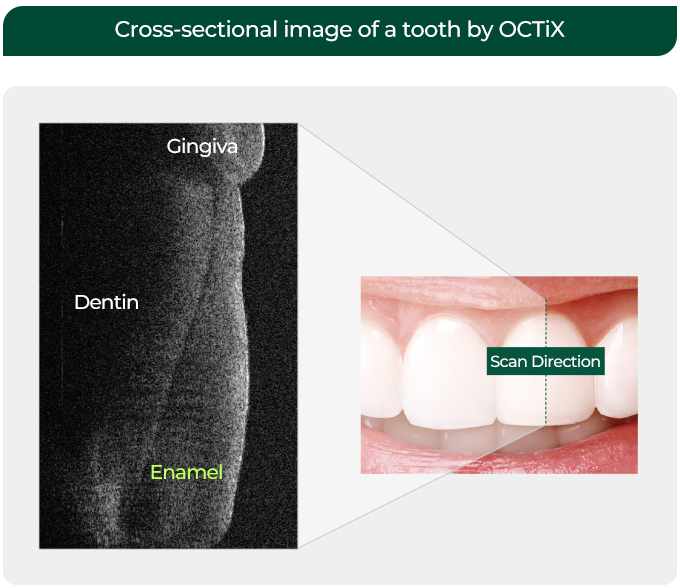
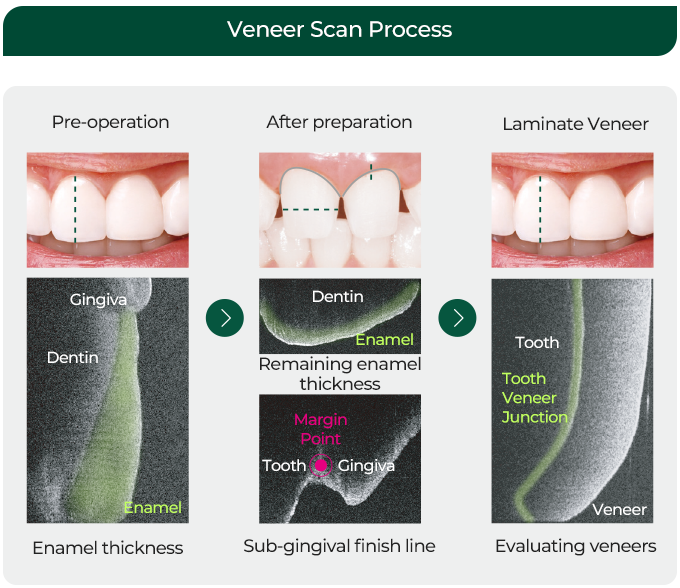
· Analyze enamel thickness and prosthetic adhesion.


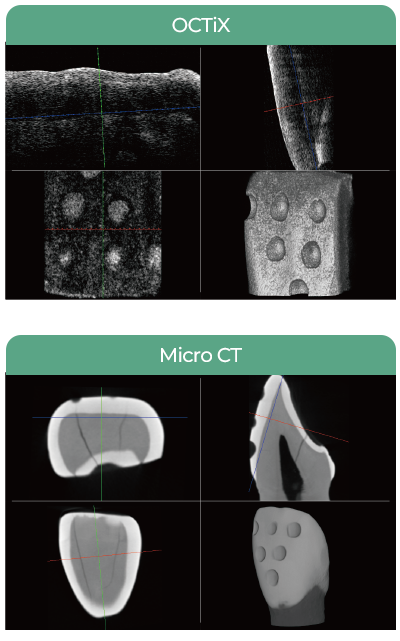
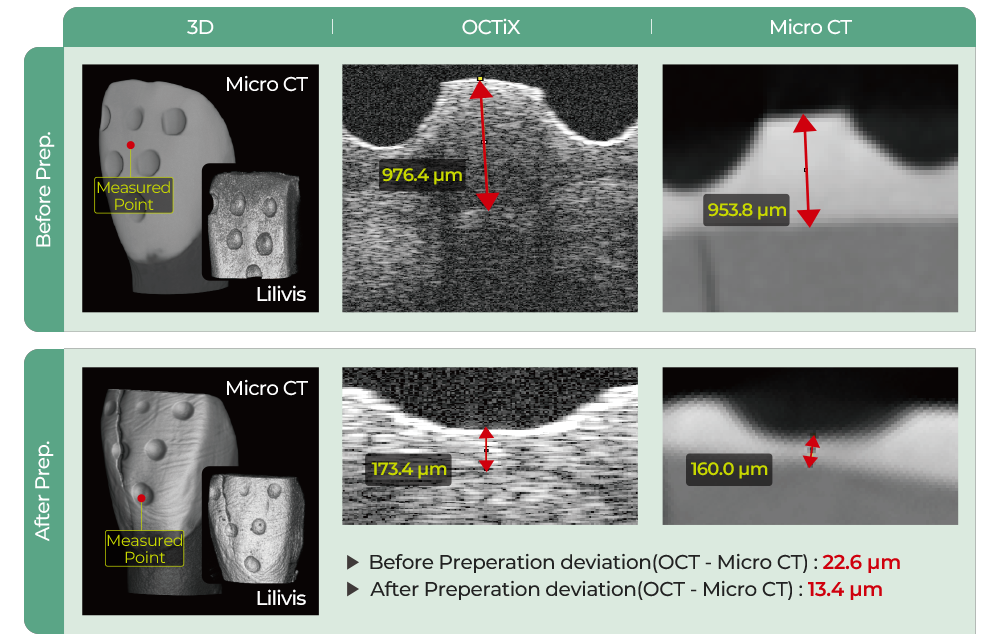
· High-resolution imaging at micrometer scale, exceeding Micro CT.
· Safe, repeatable imaging suitable for pregnant patients.
※This study was conducted Jointly by Seoul National University Dental Hospital and Huvitz.
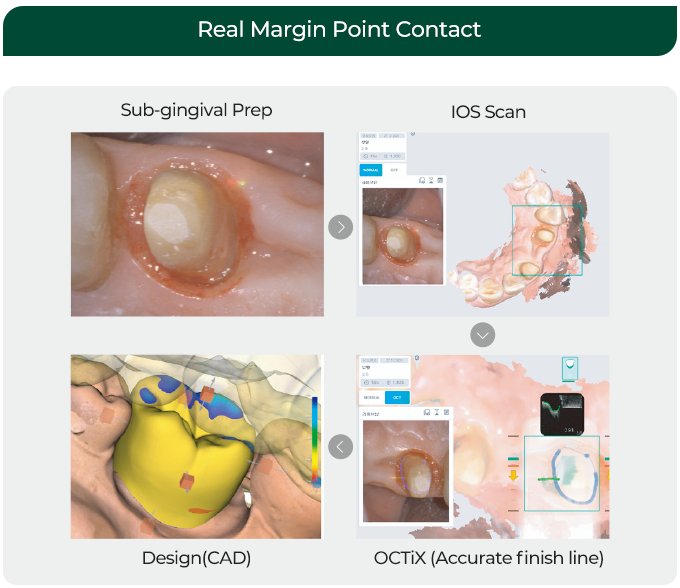

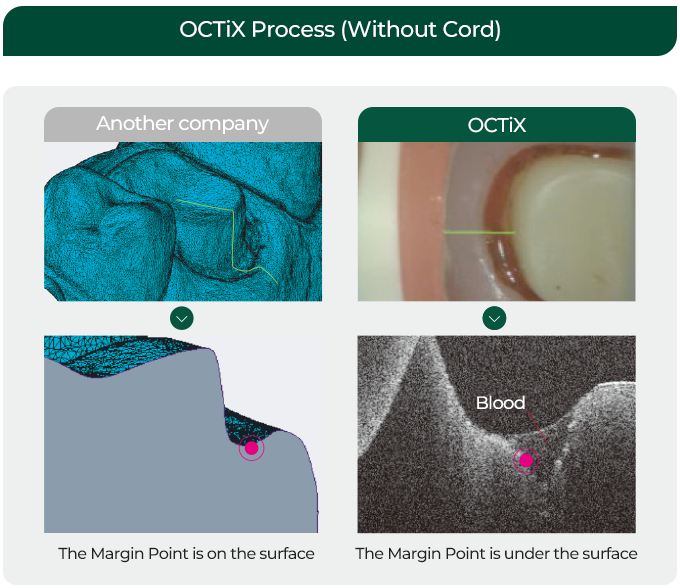

· Distinguishes gum and tooth for precise margin lines
· No need for cord insertion to measure margins.
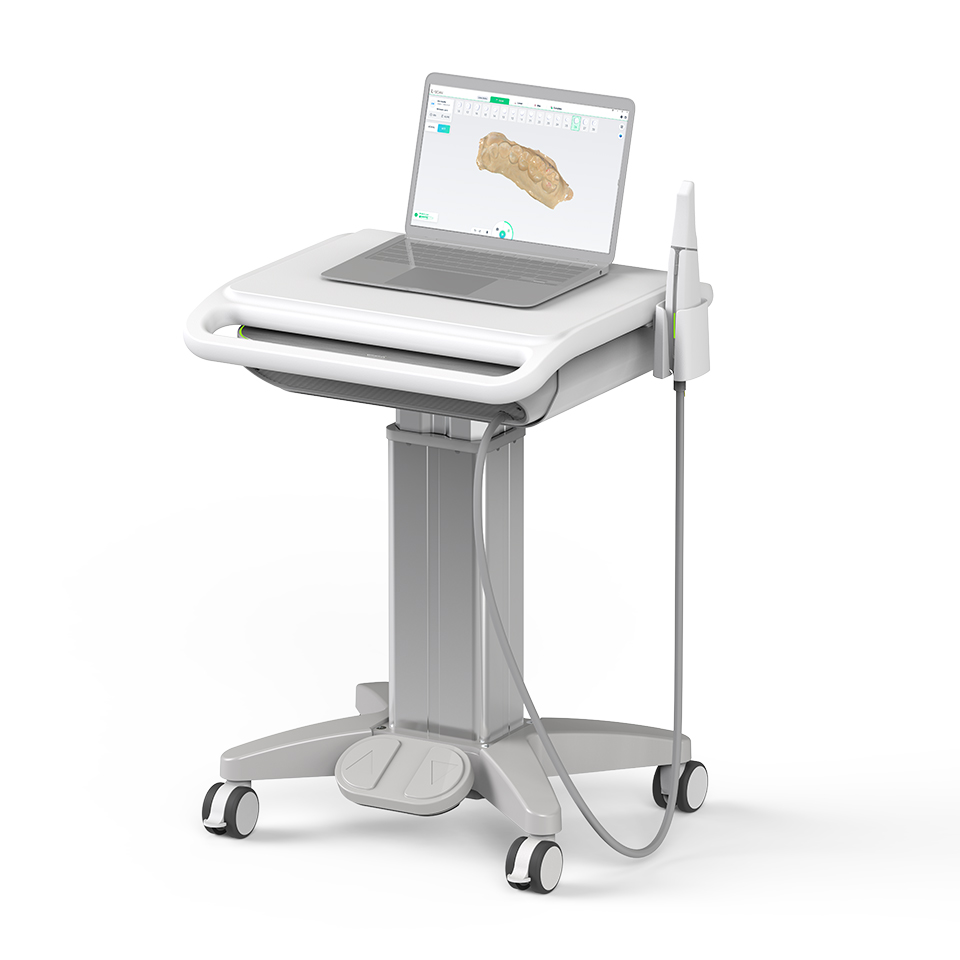
You can easily install the instruments and adjust their height with
a simple pedal operation.
The elegant white and silver color scheme blends seamlessly into
various spaces.
| DIMENSION | 580 x 590 x 784.5 mm |
| WEIGHT | 30kg |
| POWER supply | AC 220V-230V, 50/60Hz |
| Travel Length | 250mm |
| Speed | 22mm/sec |
| Load | Max 10kg |
| Others | Up, down movement operation pedal included |
Specification and design are subject to change without notice.
LSO-100
Dimensions : 277 x 40 x 57 mm
Weight : 270 g
FOV : Up to 15×18 mm
DOF : Up to 22 mm
FOV : 6 mm
Image Depth : Up to 5 mm
End Cross Section : 21.7 × 20.9 mm
Sterilization : Autoclavable (150 times per tip)
Dimensions : 490 × 363 × 103 mm
Weight : 10 kg
Cable Length : 1.8 m
* Specification and design are subject to change without notice.